
Phuket Province: Thailand's Tropical Paradise
Phuket Province, nestled in the sparkling Andaman Sea, is Thailand's largest island and a premier tropical destination. Known for its stunning beaches, vibrant nightlife, and rich cultural heritage, Phuket offers a captivating blend of natural beauty and modern amenities. Patong Beach is the island's most famous beach, bustling with activity, water sports, and lively nightlife. For a more serene experience, visit Kata or Karon Beach, where the sands are golden and the waters crystal clear. Beyond its pristine beaches, Phuket is home to many cultural landmarks. The Big Buddha, towering over Chalong, offers panoramic views of the island and is a symbol of peace and spirituality. Wat Chalong, the most important Buddhist temple in Phuket, provides a glimpse into the island's spiritual life. Stroll through the Old Phuket Town to discover Sino-Portuguese architecture, vibrant street art, and charming cafes. For adventure seekers, Phuket has a wealth of activities. Explore the lush rainforests on an elephant trek, dive into the vibrant marine life with snorkeling or scuba diving, or take a boat trip to the nearby Phi Phi Islands. Don't miss the chance to experience a traditional Thai massage or sample the local cuisine at a night market, where you can taste everything from spicy curries to fresh seafood.
Local tips in Phuket Province
- Visit during the dry season from November to April for the best weather.
- Use local tuk-tuks or rent a scooter to explore the island conveniently.
- Respect local customs, especially when visiting temples; dress modestly.
- Try street food from local vendors for an authentic taste of Phuket's cuisine.
- Book tours and excursions from reputable providers to ensure safety and quality.
Phuket Province: Thailand's Tropical Paradise
Phuket Province, nestled in the sparkling Andaman Sea, is Thailand's largest island and a premier tropical destination. Known for its stunning beaches, vibrant nightlife, and rich cultural heritage, Phuket offers a captivating blend of natural beauty and modern amenities. Patong Beach is the island's most famous beach, bustling with activity, water sports, and lively nightlife. For a more serene experience, visit Kata or Karon Beach, where the sands are golden and the waters crystal clear. Beyond its pristine beaches, Phuket is home to many cultural landmarks. The Big Buddha, towering over Chalong, offers panoramic views of the island and is a symbol of peace and spirituality. Wat Chalong, the most important Buddhist temple in Phuket, provides a glimpse into the island's spiritual life. Stroll through the Old Phuket Town to discover Sino-Portuguese architecture, vibrant street art, and charming cafes. For adventure seekers, Phuket has a wealth of activities. Explore the lush rainforests on an elephant trek, dive into the vibrant marine life with snorkeling or scuba diving, or take a boat trip to the nearby Phi Phi Islands. Don't miss the chance to experience a traditional Thai massage or sample the local cuisine at a night market, where you can taste everything from spicy curries to fresh seafood.
When is the best time to go to Phuket Province?
Iconic landmarks you can’t miss
The Big Buddha, Phuket
Discover the serene Big Buddha in Phuket, a majestic symbol of peace, culture, and breathtaking views, perfect for spiritual reflection and adventure.
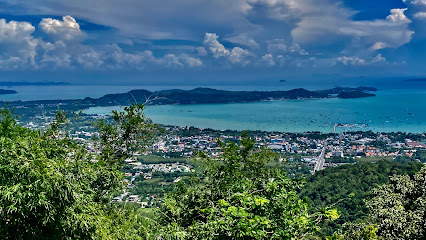
Promthep Cape
Experience the breathtaking sunsets and stunning views at Promthep Cape, a must-visit scenic spot in Phuket, Thailand's tropical paradise.
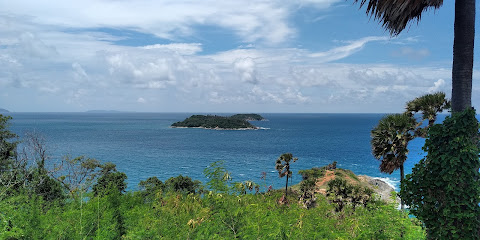
Phuket International Airport
Discover Phuket International Airport, your gateway to Thailand's breathtaking beaches, vibrant culture, and unforgettable adventures.
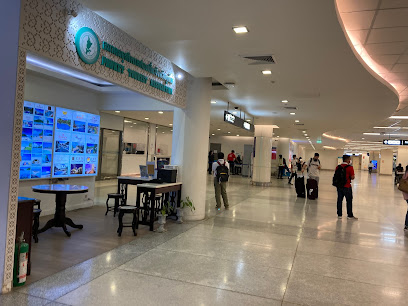
Tiger Kingdom - Phuket
Discover the thrill of close encounters with majestic tigers and exotic wildlife at Tiger Kingdom, a top attraction in Phuket, Thailand.
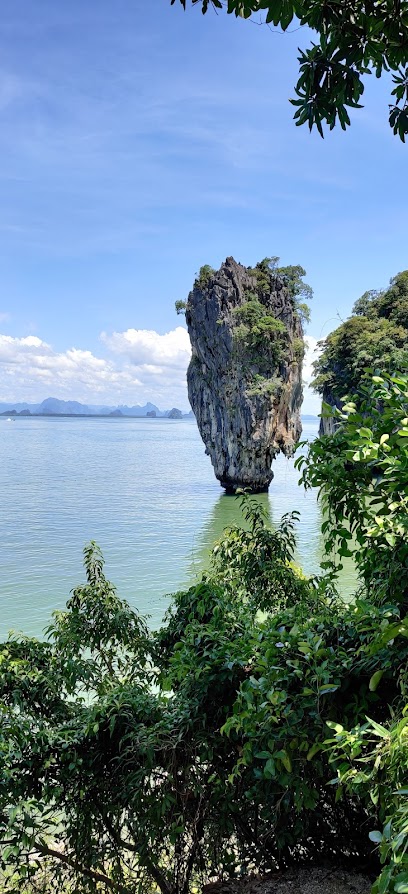
Siam Niramit Phuket
Experience the beauty of Thailand's culture at Siam Niramit Phuket, where captivating performances and rich traditions come to life.
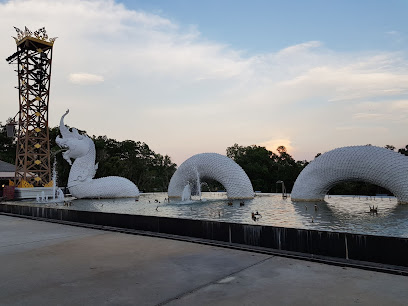
Khao Rang
Discover breathtaking views and serene landscapes at Khao Rang, Phuket's top scenic viewpoint, perfect for relaxation and photography.
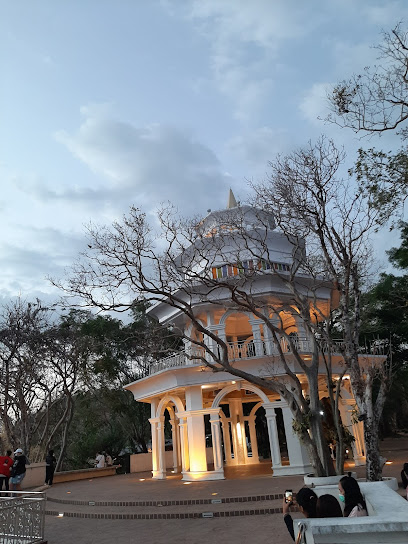
Windmill Viewpoint
Discover the breathtaking views and serene landscapes at Windmill Viewpoint in Phuket, a must-visit scenic spot for every traveler.
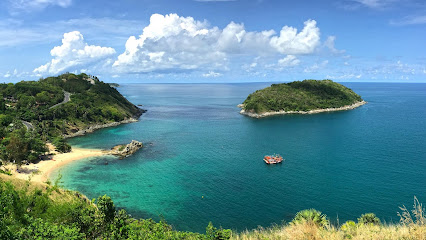
Green Elephant Sanctuary Park
Experience a unique adventure at Green Elephant Sanctuary Park, where you can connect with rescued elephants in a compassionate and ethical environment.
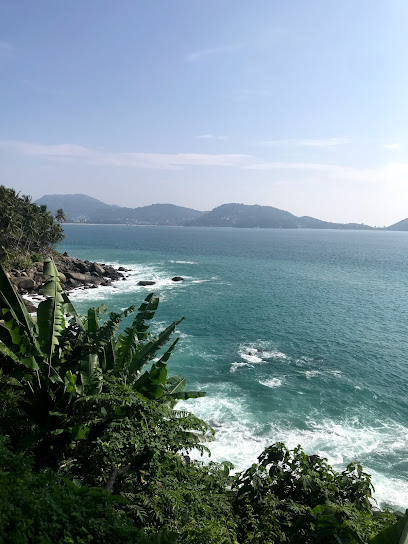
Andamanda Phuket
Explore Andamanda Phuket, a vibrant water park in Kathu, Thailand, offering thrilling rides, relaxing pools, and unforgettable family fun in a tropical setting.
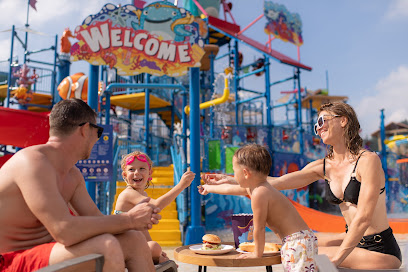
Phuket FantaSea
Experience the magic of Thai culture at Phuket FantaSea, a spectacular theme park offering thrilling performances and exquisite dining.
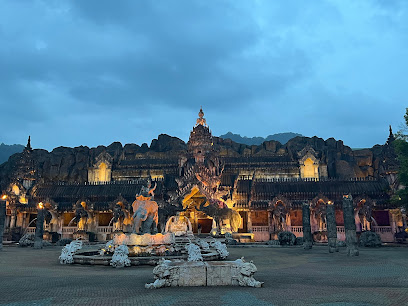
Karon Temple Market
Discover the vibrant Karon Temple Market in Phuket, a cultural gem filled with local crafts, delicious street food, and lively atmosphere.

Kathu Waterfall
Discover the serene beauty of Kathu Waterfall in Phuket, a tranquil escape amidst lush jungles and cascading waters, perfect for relaxation and adventure.
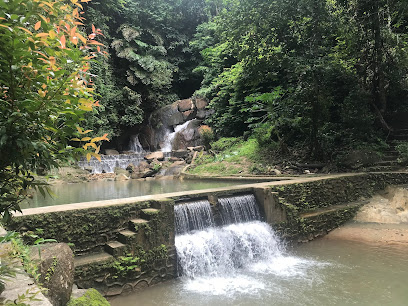
Phuket Bird Park
Explore Phuket Bird Park: A captivating wildlife experience featuring exotic bird species, engaging shows, and beautiful gardens, perfect for families and nature lovers.
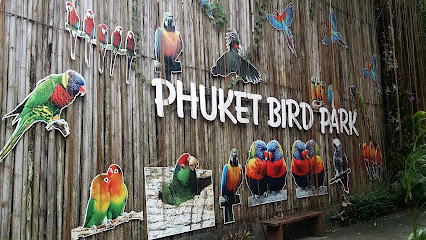
Ancient buildings in Sino-European style
Discover the stunning Sino-European architecture in Phuket, a vibrant blend of cultures that showcases the island's rich history and artistic heritage.
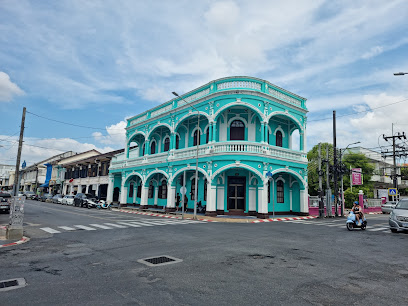
Monkey Hill Viewpoint
Experience stunning panoramic views and playful monkeys at Phuket's iconic Monkey Hill Viewpoint, a must-visit scenic spot for every traveler.
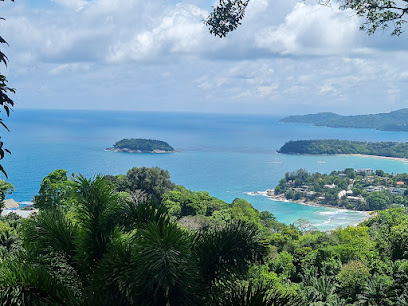
Unmissable attractions to see
The Big Buddha, Phuket
Explore the spiritual heart of Phuket at the Big Buddha, a towering statue offering breathtaking views and tranquility amidst lush landscapes.
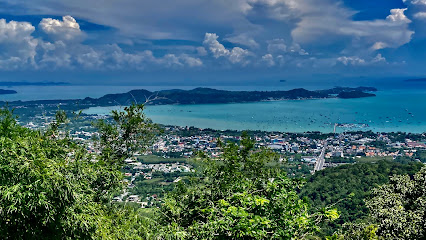
Cape Phrom Thep
Experience the breathtaking vistas and enchanting sunsets at Cape Phrom Thep, Phuket's southernmost scenic gem.
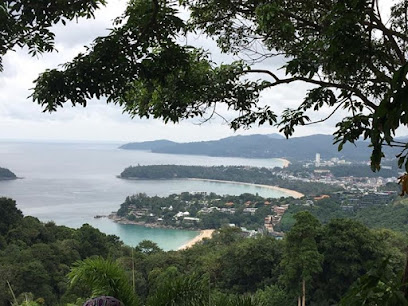
Tiger Kingdom - Phuket
Experience the thrill of close encounters with majestic tigers and diverse wildlife at Tiger Kingdom, Phuket's premier animal park and tourist attraction.
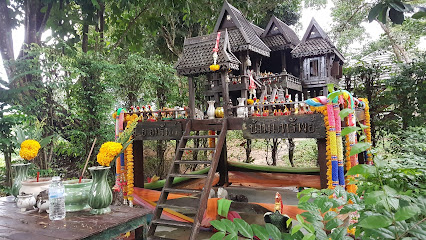
Siam Niramit Phuket
Experience the enchanting world of Thai culture at Siam Niramit Phuket, an unforgettable performance blending dance, music, and stunning visuals.
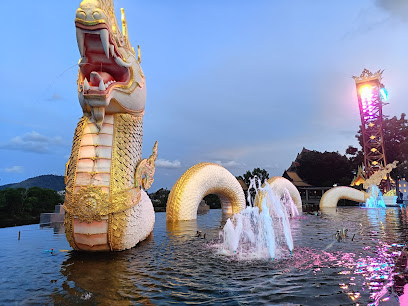
Freedom Beach
Experience the tranquil beauty of Freedom Beach in Phuket, a hidden gem with pristine sands and crystal-clear waters perfect for relaxation and adventure.
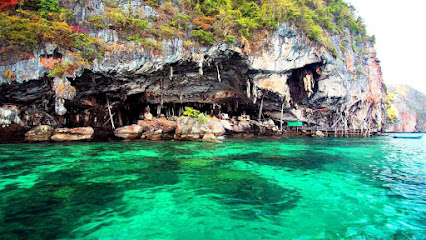
Khao Rang
Discover breathtaking views and tranquil nature at Khao Rang, a stunning hilltop park in Phuket, Thailand.
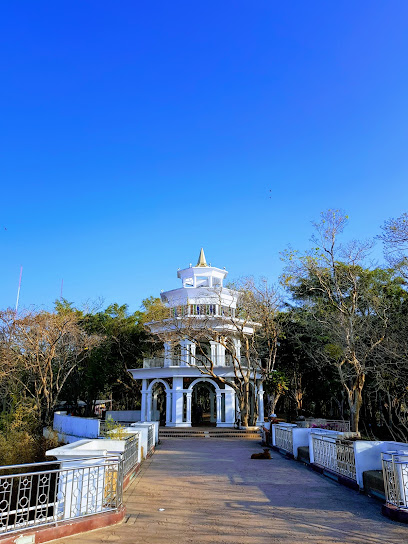
Patong Otop Shopping Paradise
Discover local craftsmanship and authentic Thai cuisine at OTOP Shopping Paradise, a vibrant market in the heart of Patong, Phuket.
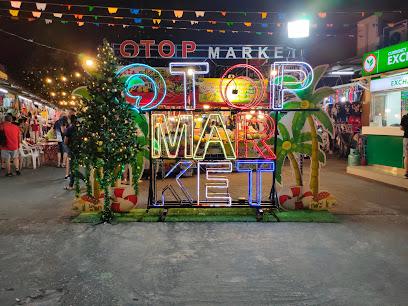
Sirinat National Park
Discover the breathtaking landscapes and rich biodiversity of Sirinat National Park, a must-visit destination on your Phuket adventure.
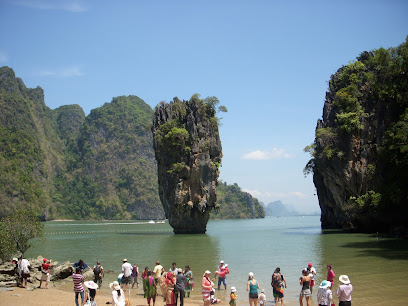
Phuket Aquarium
Explore the enchanting Phuket Aquarium, a premier tourist attraction showcasing the vibrant marine life of Thailand's Andaman Sea.
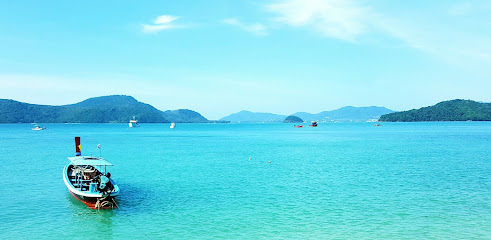
Green Elephant Sanctuary Park
Discover the heartwarming experience of interacting with elephants at the Green Elephant Sanctuary Park in Phuket, where conservation meets compassion.
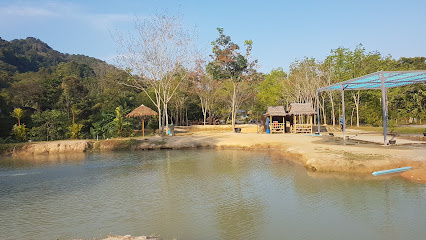
Phuket FantaSea
Discover the magic of Thai culture at Phuket FantaSea, an enchanting theme park featuring spectacular shows, thrilling rides, and unforgettable experiences.
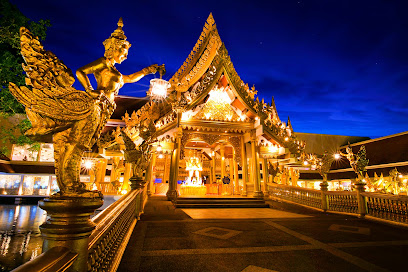
Tiger Park Phuket
Explore the wonders of Tiger Park Phuket, where unforgettable encounters with majestic tigers and exotic wildlife await every visitor in a stunning natural setting.
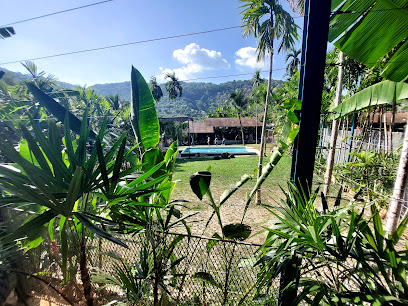
Thao Thep Krasattri and Thao Si Sunthon Monument
Explore the rich history of Phuket at the Thao Thep Krasattri and Thao Si Sunthon Monument, a tribute to legendary Thai heroines and their valor.
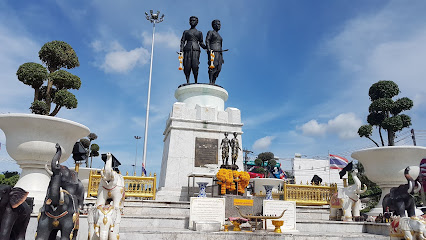
Phuket 3D Museum
Discover the magic of three-dimensional art at the Phuket 3D Museum, where creativity meets interactive fun in a vibrant atmosphere.
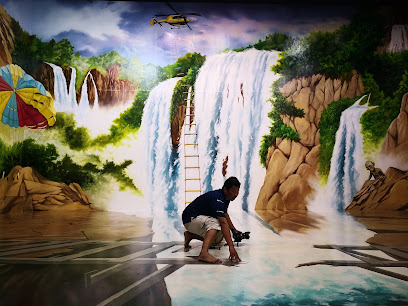
Kathu Waterfall
Explore the enchanting Kathu Waterfall, a natural oasis in Phuket, perfect for relaxation, swimming, and family adventures amidst lush greenery.
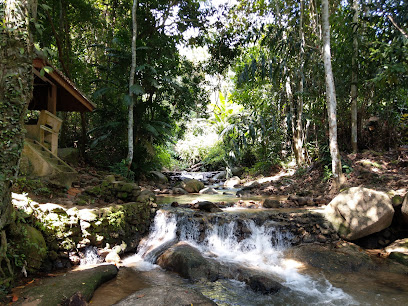
Essential places to dine
Three Monkeys Restaurant
Discover culinary delights at Three Monkeys Restaurant in Phuket - where local flavors meet international flair in an inviting atmosphere.
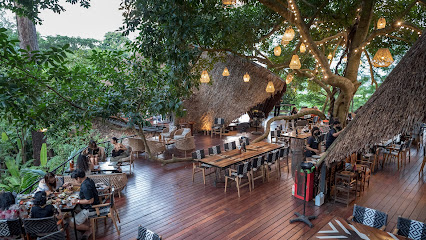
Tu Kab Khao Restaurant Phuket
Discover authentic Thai cuisine at Tu Kab Khao Restaurant in Phuket, where tradition meets flavor in every dish.
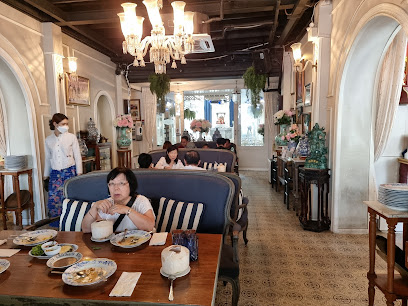
Blue Elephant Cooking School & Restaurant Phuket
Experience authentic Thai cuisine and hands-on cooking classes at Blue Elephant Cooking School & Restaurant in Phuket.
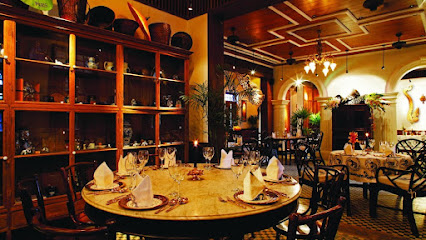
The Zula Phuket Turkish Restaurant & Cafè Patong
Discover authentic Turkish cuisine at The Zula Phuket, where flavor meets hospitality in the heart of Patong.
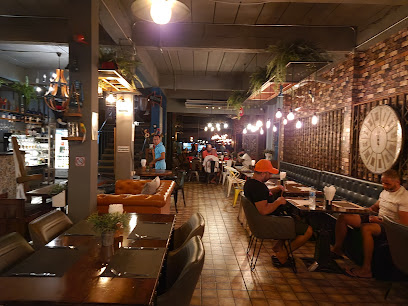
Tunk-ka Cafe
Discover Tunk-ka Cafe in Phuket - where authentic Thai flavors meet delightful desserts in a scenic setting.
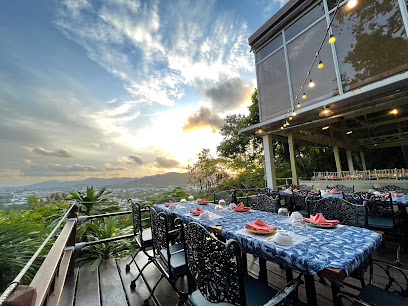
Bocconcino Phuket
Discover authentic Italian cuisine at Bocconcino Phuket – where every meal feels like a getaway to Italy.
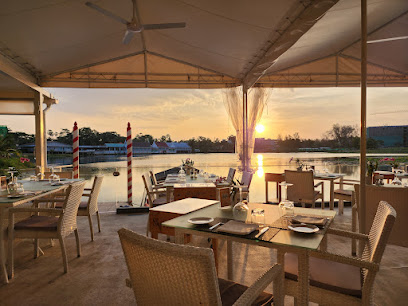
Black Cat Bar & Restaurant
Experience the perfect fusion of Thai and French flavors at Black Cat Bar & Restaurant in Phuket's charming Choeng Thale.
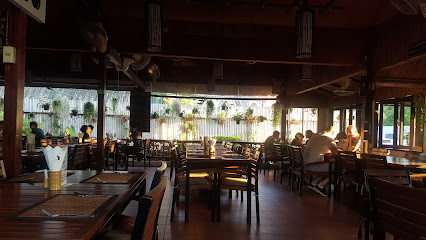
Black Ginger | Thai Restaurant | The Slate, Phuket
Experience the taste of authentic Thai cuisine at Black Ginger in Phuket's luxurious The Slate resort.
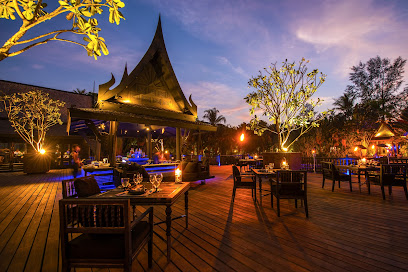
Sugar Cane Restaurant
Savor the best of Thai and European cuisine at Sugar Cane Restaurant in Phuket - where every meal is a delightful journey of flavors.
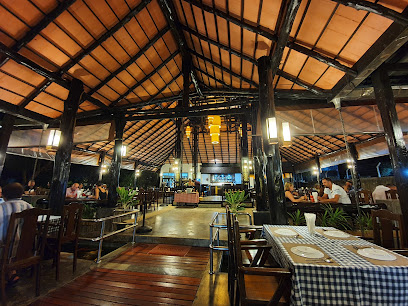
Lae lay @khao-khad
Discover authentic Thai flavors with stunning views at Lae Lay @ Khao Khad in Phuket - a culinary delight for all tastes.
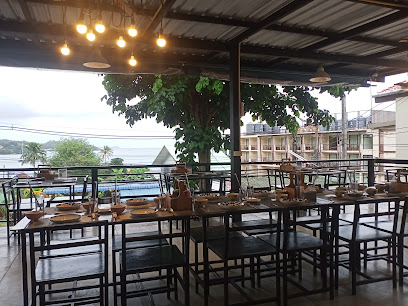
The Corner Restaurant
Discover the perfect blend of German precision and Thai zest at The Corner Restaurant in Phuket.
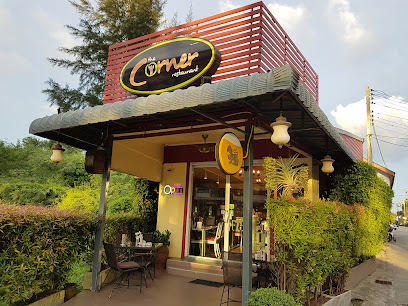
L'Arôme by the sea
Discover exquisite modern French cuisine at L'Arôme by the Sea in Phuket, where culinary artistry meets breathtaking ocean views.
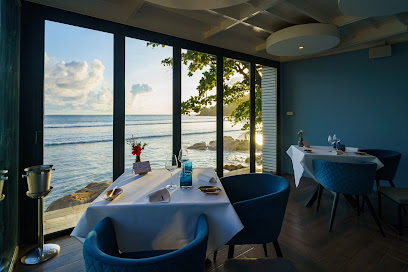
The Charm Dining Gallery
Discover authentic Thai cuisine at The Charm Dining Gallery in Phuket—where tradition meets taste in an inviting atmosphere.
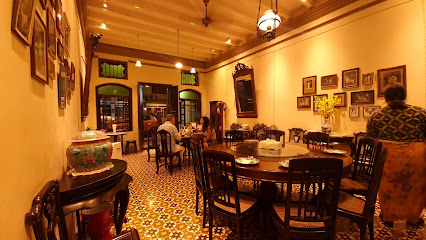
Surf & Turf by Soul Kitchen
Experience exquisite Asian fusion cuisine at Surf & Turf by Soul Kitchen in Phuket - a true delight for food lovers.
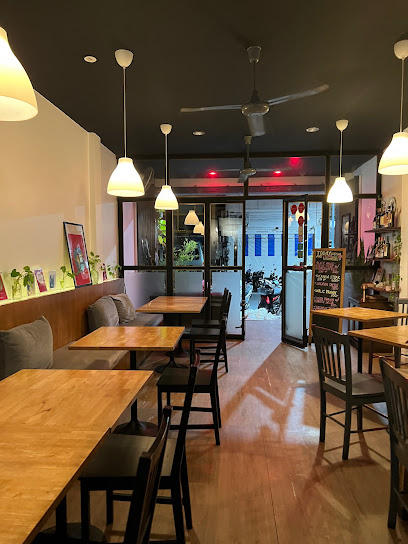
Khao Rang Breeze Restaurant
Experience breathtaking views and exquisite Asian fusion cuisine at Khao Rang Breeze Restaurant in Phuket – a true gem for food lovers.
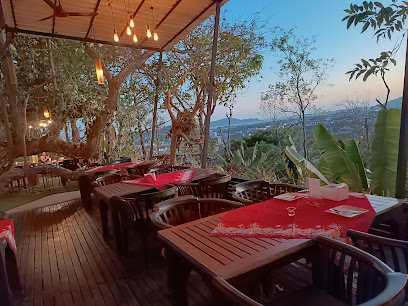
Markets, malls and hidden boutiques
UNIQLO Tesco Lotus Phuket Store
Discover trendy fashion at UNIQLO Phuket, where quality meets affordability in a vibrant shopping atmosphere.
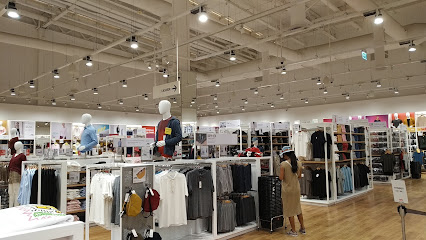
Bina souvenir & spa shop Phuket patong otop market
Explore Bina Souvenir & Spa Shop in Phuket for authentic Thai gifts and unique souvenirs that celebrate local craftsmanship.
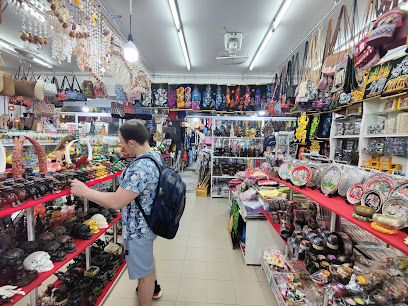
ES Phuket
Explore the vibrant fashion scene of Phuket at ES Phuket, where unique styles meet local creativity for an unforgettable shopping experience.
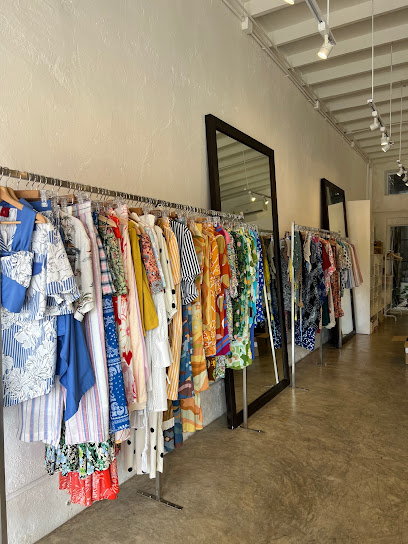
UNIQLO CentralFestival Phuket Store
Discover affordable fashion at UNIQLO CentralFestival Phuket, where style meets comfort in a vibrant shopping atmosphere.
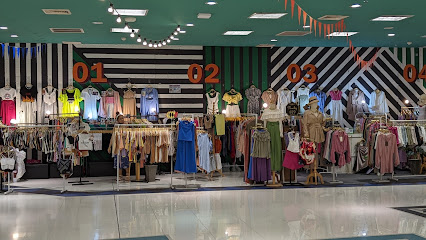
Gochapan Phuket
Explore Gochapan Phuket, a treasure trove of unique souvenirs and local crafts, perfect for tourists seeking memorable keepsakes.
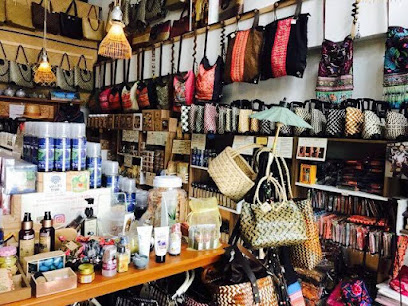
Mr.Gifts Kpop
Explore the ultimate K-Pop shopping destination at Mr.Gifts Kpop in Phuket, featuring exclusive merchandise, collectibles, and a vibrant atmosphere for every fan.
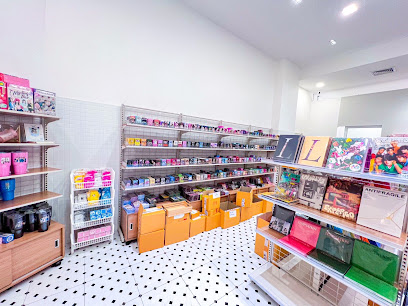
Fe2 Decor Co.Ltd ( Rare Crystal & Unique Jewelry & Fine Gifts ) Phuket Thailand
Discover Fe2 Decor Co. Ltd in Phuket: A gem of rare crystals, fine jewelry, and unique gifts that celebrate Thai craftsmanship and artistry.
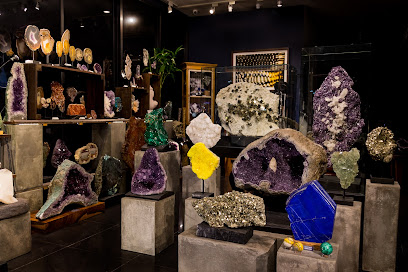
Japan outlet
Explore the exquisite craftsmanship of pottery at Japan Outlet, your go-to destination for unique ceramic art in Phuket.
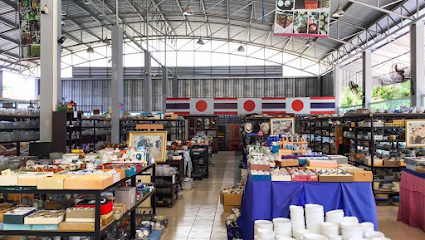
CHANDRA BOUTIQUE Phuket
Explore Chandra Boutique Phuket for unique clothing and quality fabrics that capture the vibrant spirit of Thailand's fashion scene.
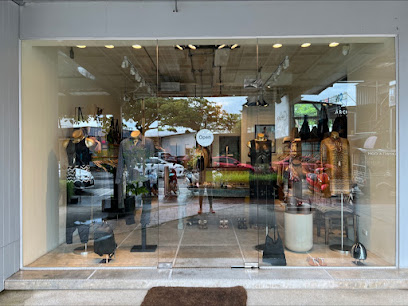
Good Shepherd Crafts & Thrift Shop
Explore unique handmade crafts and thrifted treasures at Good Shepherd Crafts & Thrift Shop, a charitable haven in Phuket.
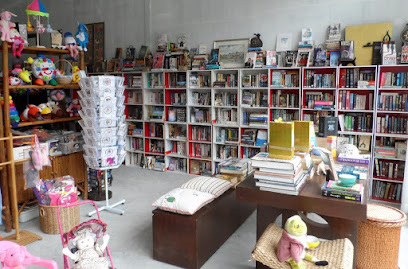
Once in Phuket @Karon Beach
Explore unique Thai souvenirs at Once in Phuket @Karon Beach, your go-to spot for authentic keepsakes and local craftsmanship.
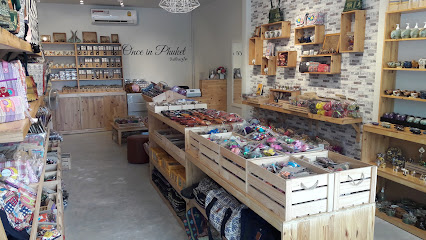
69Slam Phuket Outlet Store
Shop at 69Slam Phuket Outlet Store for stylish beachwear and casual clothing at affordable prices, perfect for elevating your island wardrobe.
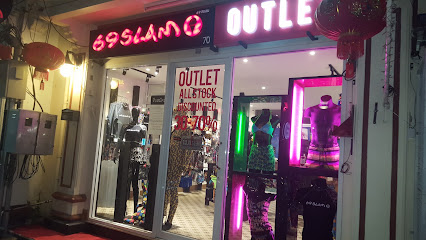
Pomelo - Central Phuket
Discover the latest fashion trends at Pomelo - Central Phuket, your go-to clothing store for stylish apparel and unique accessories.
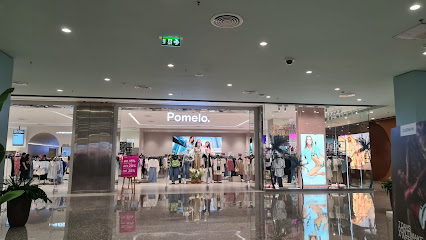
Phuket Leather Shop
Explore the artistry of Phuket Leather Shop, featuring handcrafted leather goods and unique memorabilia for every traveler.
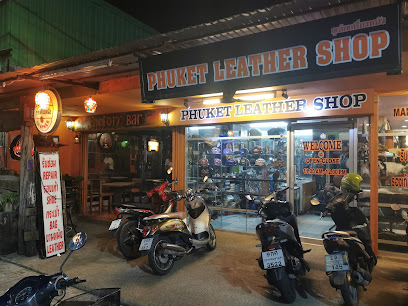
The Elephant
Discover unique gifts and local artistry at The Elephant, a charming gift shop in the heart of Phuket, perfect for souvenirs and keepsakes.
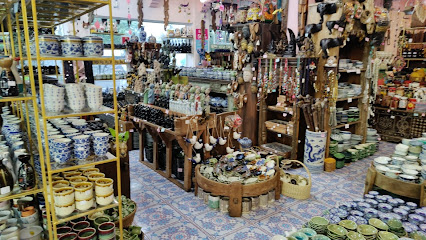
Essential bars & hidden hideouts
Aussie Bar
Discover Aussie Bar in Patong, Phuket, where vibrant nightlife meets delicious Australian grill cuisine and refreshing drinks.
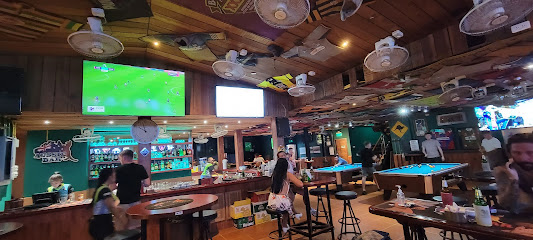
New York - Live Music Bar
Discover the heartbeat of New York's nightlife at the Live Music Bar, where unforgettable performances keep the energy alive all night long.
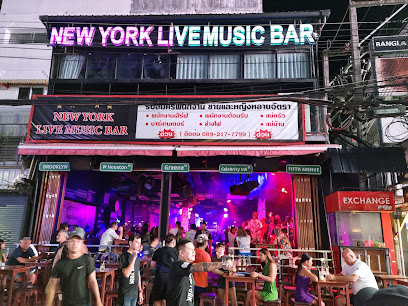
The Column Phuket
Experience the best of Phuket's nightlife at The Column, where delicious Thai cuisine meets live music in a vibrant setting.
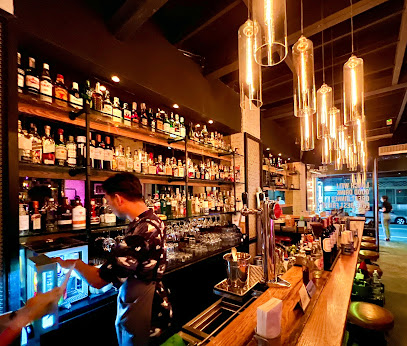
The Library Phuket
Experience the vibrant nightlife at The Library Phuket, where exquisite cocktails meet a chic tropical ambiance.
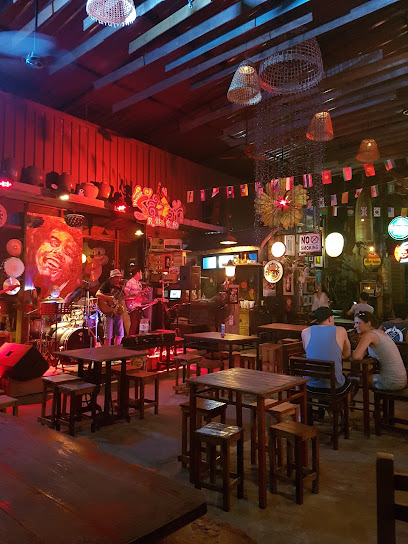
Dibuk House
Experience the essence of Phuket's nightlife at Dibuk House, renowned for its creative cocktails and inviting ambiance in Talat Yai.
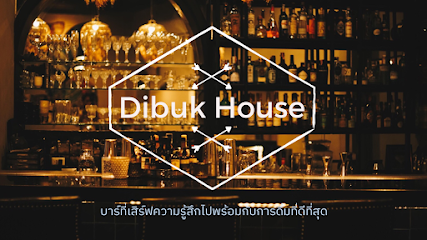
Club No 43
Discover the vibrant nightlife of Phuket at Club No 43, a cocktail bar serving innovative drinks in an energetic atmosphere.
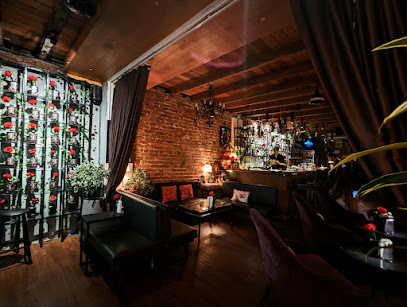
Cue bar
Discover the lively and welcoming ambiance of Cue Bar in Phuket, where diverse drinks and a vibrant atmosphere await every visitor.
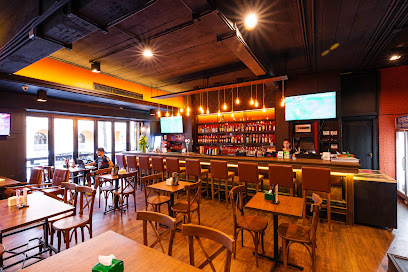
Pepper's Bar
Experience the vibrant nightlife at Pepper's Bar in Phuket, where refreshing drinks and lively entertainment come together for an unforgettable experience.
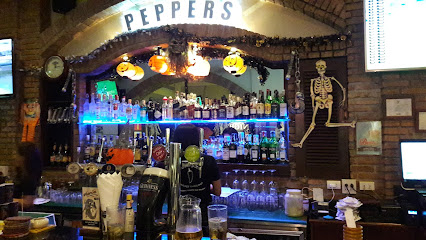
Michel Angelo’s Bar, Lounge and Diner
Discover Michel Angelo's Bar, Lounge and Diner in Phuket - the perfect fusion of delightful cuisine and vibrant nightlife.
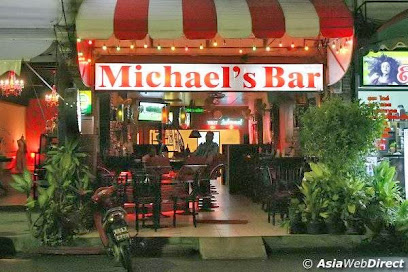
Baba Nest
Experience breathtaking sunsets and exquisite cocktails at Baba Nest, the exclusive rooftop bar that redefines nightlife in Phuket.
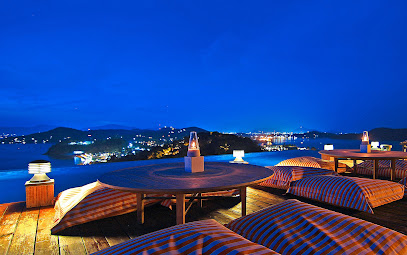
BrewBridge - Craft Beer Bar Phuket - 12 Beers on Tap
Experience the best craft beers in Phuket at BrewBridge, a cozy bar offering a rotating selection of 12 taps and a welcoming atmosphere.
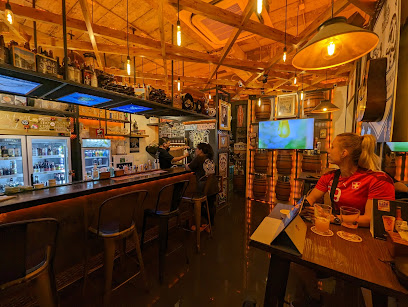
Russell Sunset Bar
Discover the magic of Phuket sunsets at Russell Sunset Bar, where drinks, views, and relaxation come together in perfect harmony.
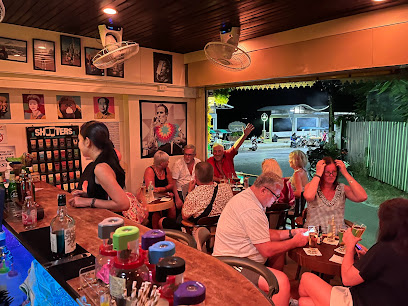
Ole Bar
Experience the vibrant nightlife at Ole Bar in Phuket, where great cocktails and lively music create an unforgettable atmosphere.
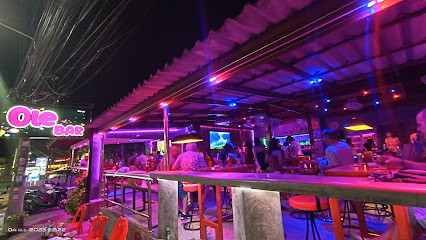
Estrela Sky Lounge
Experience the elegance of Estrela Sky Lounge in Phuket, where fine dining meets stunning skyline views and crafted cocktails.
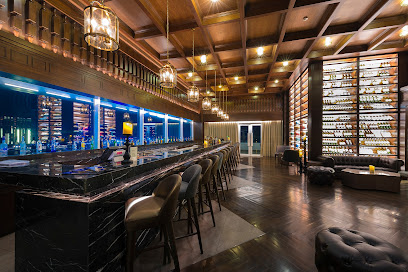
Inspired cocktails and wine
Experience the best of Phuket nightlife at Inspired Bar, where expertly crafted cocktails and fine wines create unforgettable memories.
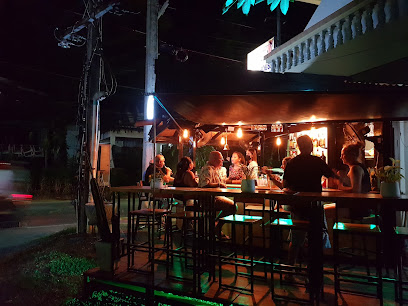
Local Phrases about Phuket Province
-
- Helloสวัสดี
[sawasdee] - Goodbyeลาก่อน
[laa kon] - Yesใช่
[chai] - Noไม่
[mai] - Please/You're welcomeโปรด/ยินดีต้อนรับ
[proat/yindee ton rap] - Thank youขอบคุณ
[kob khun] - Excuse me/Sorryขอโทษ
[kor toht] - How are you?สบายดีไหม?
[sabai dee mai?] - Fine. And you?สบายดีครับ คุณล่ะ?
[sabai dee krap kun la?] - Do you speak English?คุณพูดภาษาอังกฤษได้ไหม?
[kun poot paa saa angkrit dai mai?] - I don't understandฉันไม่เข้าใจ
[chan mai kao jai]
- Helloสวัสดี
-
- I'd like to see the menu, pleaseฉันอยากดูเมนู โปรด
[chan yahk doo menu proat] - I don't eat meatฉันไม่กินเนื้อ
[chan mai gin neuua] - Cheers!ชนเหยาะ!
[chon yao] - I would like to pay, pleaseฉันอยากจ่ายเงิน โปรด
[chan yahk jai ngern proat]
- I'd like to see the menu, pleaseฉันอยากดูเมนู โปรด
-
- Help!ช่วยด้วย!
[chuay duay] - Go away!ไปทางนั้น!
[bpai tang nan] - Call the Police!โทรตำรวจ!
[tor tamruat] - Call a doctor!โทรหมอ!
[tor mor] - I'm lostฉันหลงทาง
[chan long tang] - I'm illฉันไม่สบาย
[chan mai sabai]
- Help!ช่วยด้วย!
-
- I'd like to buy...ฉันอยากซื้อ...
[chan yahk seuu...] - I'm just lookingฉันเพียงแค่มอง
[chan piang kae mong] - How much is it?ราคาเท่าไหร่?
[ra kaa tao rai?] - That's too expensiveแพงเกินไป
[paeng geen bpai] - Can you lower the price?ลดราคาได้ไหม?
[lot ra kaa dai mai?]
- I'd like to buy...ฉันอยากซื้อ...
-
- What time is it?ตอนนี้กี่โมงแล้ว?
[ton nee gee mong laeo?] - It's one o'clockเป็นโมงที่หนึ่ง
[pen mong tee neung] - Half past (10)ครึ่งหลัง...
[krung lang...] - Morningเช้า
[chao] - Afternoonบ่าย
[bai] - Eveningเย็น
[yen] - Yesterdayเมื่อวาน
[meua waan] - Todayวันนี้
[wan nee] - Tomorrowพรุ่งนี้
[proong nee] - 1หนึ่ง
[neung] - 2สอง
[song] - 3สาม
[sam] - 4สี่
[see] - 5ห้า
[ha] - 6หก
[hok] - 7เจ็ด
[jet] - 8แปด
[bpaeht] - 9เก้า
[gao] - 10สิบ
[sip]
- What time is it?ตอนนี้กี่โมงแล้ว?
-
- Where's a/the...?...อยู่ที่ไหน?
[...yoo tee nai?] - What's the address?ที่อยู่คืออะไร?
[tee yoo keu arai?] - Can you show me (on the map)?คุณสามารถแสดงให้ฉันดูได้ไหม?
[kun sa maat saeng hai chan doo dai mai?] - When's the next (bus)?รถเมล์ต่อไปเวลาเท่าไหร่?
[rot mel tor bai welaa tao rai?] - A ticket (to ....)ตั๋ว (ไปที่...)
[dtua (bpai tee...)]
- Where's a/the...?...อยู่ที่ไหน?
History of Phuket Province
-
Phuket Province, known historically as Thalang, has been home to various indigenous tribes such as the Semang and the Maniq. These tribes lived in harmony with the island's lush forests and abundant marine life for centuries before the arrival of foreign merchants and settlers.
-
Phuket's wealth largely stemmed from its rich tin deposits. During the 16th century, the island became a significant tin mining hub attracting Chinese laborers and merchants. The influx of Chinese immigrants greatly influenced Phuket's culture and architecture, a legacy that can still be seen today in the Sino-Portuguese buildings in Old Phuket Town.
-
Phuket's strategic location made it a key player in regional maritime trade routes between India, China, and the Malay Peninsula. The island served as a bustling port where goods such as spices, textiles, and ceramics were exchanged. This brought a diverse mix of cultures and traditions to the island.
-
In 1785, Phuket faced a significant historical event known as the Battle of Thalang. The island was invaded by Burmese forces, but the local population, led by the heroic sisters Chan and Mook, successfully repelled the attackers. This event is commemorated by the Two Heroines Monument in Phuket.
-
Though never colonized, Phuket was influenced by European powers. Portuguese, Dutch, and French traders established trading posts on the island. The blend of Eastern and Western architectural styles in Phuket Town is a testament to this period of cultural exchange.
-
The latter half of the 20th century saw Phuket transforming into a global tourist destination. The island's white sandy beaches, vibrant nightlife, and rich cultural heritage attracted millions of visitors each year. This boom in tourism significantly shaped Phuket's economy and infrastructure.
-
Phuket was severely affected by the Indian Ocean tsunami on December 26, 2004. The natural disaster caused massive destruction and loss of life. The island has since rebuilt and memorials, such as the Tsunami Memorial Wall in Kamala, stand as a tribute to those who lost their lives.
-
Today, Phuket is a vibrant blend of traditional Thai culture and modern amenities. The island hosts numerous festivals such as the Phuket Vegetarian Festival and Loy Krathong, which highlight its rich cultural tapestry. Phuket continues to evolve while preserving its historical and cultural heritage.
Phuket Province Essentials
-
Phuket Province is accessible via multiple modes of transportation. The most common way is by air through Phuket International Airport (HKT), which has direct flights from many international destinations. For those traveling from within Thailand, domestic flights are available from major cities like Bangkok, Chiang Mai, and Pattaya. Alternatively, travelers can reach Phuket by bus from Bangkok, which takes approximately 12-14 hours. Trains do not go directly to Phuket, but you can take a train to Surat Thani and then a bus to Phuket.
-
Within Phuket Province, there are several transportation options. Tuk-tuks and taxis are widely available for short trips, though they can be expensive. Ride-sharing apps like Grab are also popular. For a more local experience, you can use songthaews (shared minibuses) or local buses which connect major beaches and towns. Renting a motorbike or car is another convenient option, but make sure you have an international driving permit and are familiar with local driving laws.
-
The official currency in Thailand is the Thai Baht (THB). Credit cards are widely accepted in hotels, restaurants, and larger shops, but it is advisable to carry cash for smaller establishments, markets, and street vendors. ATMs are abundant throughout Phuket, and currency exchange counters can be found at the airport, banks, and major tourist areas. It's a good idea to notify your bank of your travel plans to avoid any issues with card usage.
-
Phuket is generally safe for tourists, but it's essential to stay vigilant. Petty crimes such as pickpocketing and bag snatching can occur, especially in crowded areas like Patong Beach and Phuket Town. Avoid dark or isolated areas at night and always keep an eye on your belongings. Be cautious of scams involving jet ski rentals and taxi fares. It's also wise to avoid the nightlife district of Bangla Road late at night if you are alone.
-
In case of emergency, dial 191 for police assistance or 1669 for medical emergencies. Phuket has several hospitals and clinics, including Bangkok Hospital Phuket and Patong Hospital. Pharmacies are widespread, and many medications can be bought over the counter. It is advisable to have comprehensive travel insurance that covers medical emergencies and accidents. For consular assistance, contact your embassy or consulate in Thailand.
-
Fashion: Do dress modestly, especially when visiting temples. Avoid wearing revealing clothing in public places. Religion: Do show respect at religious sites. Remove your shoes before entering temples and dress appropriately. Public Transport: Do be polite and patient while using public transport. Don't raise your voice or display impatience. Greetings: Do greet people with a wai (a slight bow with palms pressed together). Avoid touching someone's head, as it is considered disrespectful. Eating & Drinking: Do try local food and eat with a spoon and fork, as Thais typically do. Don't point your feet at people or religious objects, as it is considered rude.
-
To experience Phuket like a local, visit the local markets such as Banzaan Fresh Market and Phuket Weekend Market for fresh produce and street food. Engage with locals, who are generally friendly and willing to share insights about their culture and lifestyle. Don't miss exploring less touristy beaches like Nai Harn and Kamala for a more relaxed atmosphere. Participate in local festivals like Songkran (Thai New Year) to immerse yourself in Thai culture.
Trending Landmarks in Phuket Province
-
The Big Buddha, Phuket
-
Promthep Cape
-
Phuket International Airport
-
Tiger Kingdom - Phuket
-
Siam Niramit Phuket
-
Khao Rang
-
Windmill Viewpoint
-
Green Elephant Sanctuary Park
-
Andamanda Phuket
-
Phuket FantaSea
-
Karon Temple Market
-
Kathu Waterfall
-
Phuket Bird Park
-
Ancient buildings in Sino-European style
-
Monkey Hill Viewpoint
Nearby Cities to Phuket Province
-
Things To Do in Krabi
-
Things To Do in Trang
-
Things To Do in Surat Thani
-
Things To Do in Nakhon Si Thammarat
-
Things To Do in Ranong
-
Things To Do in Langkawi
-
Things To Do in Satun
-
Things To Do in Koh Samui
-
Things To Do in Chumphon
-
Things To Do in George Town
-
Things To Do in Penang
-
Things To Do in Kota Bharu
-
Things To Do in Ipoh
-
Things To Do in Medan
-
Things To Do in Cameron Highlands













